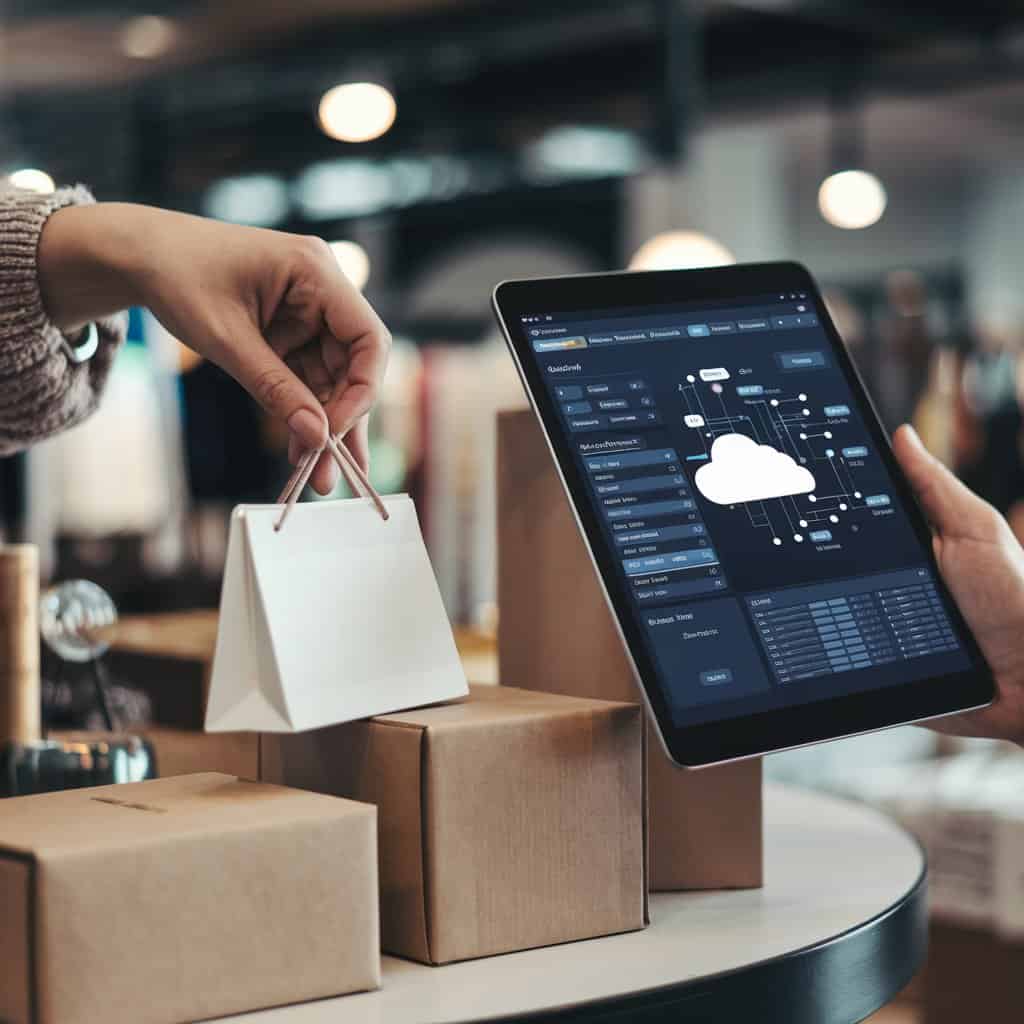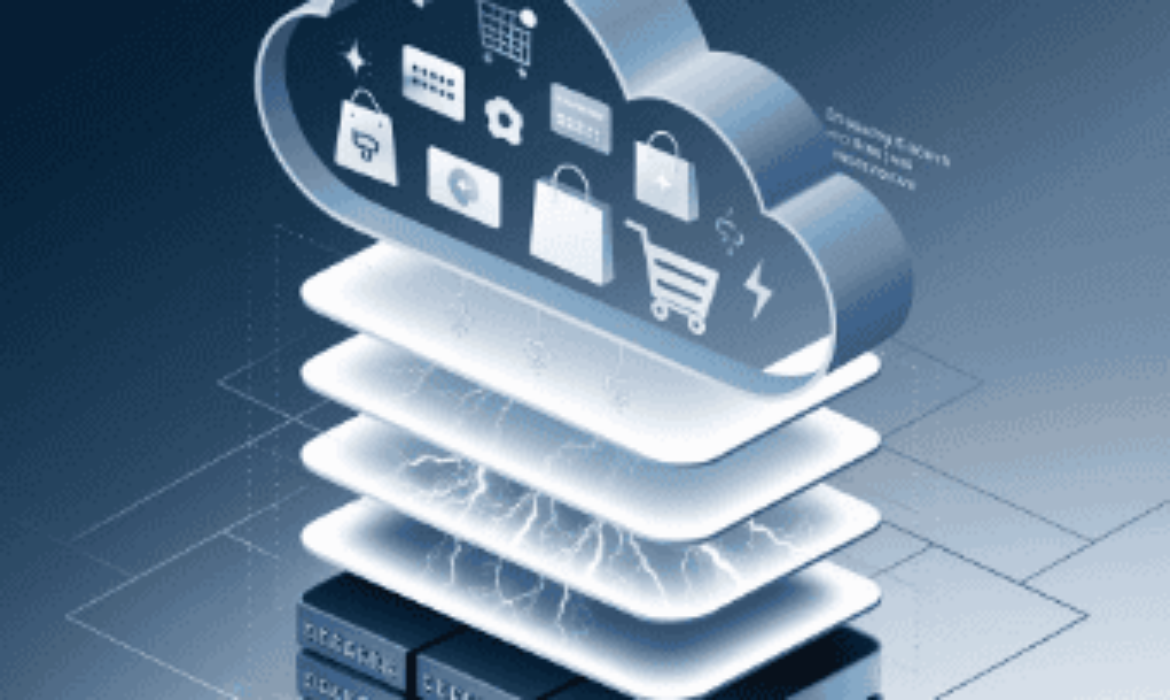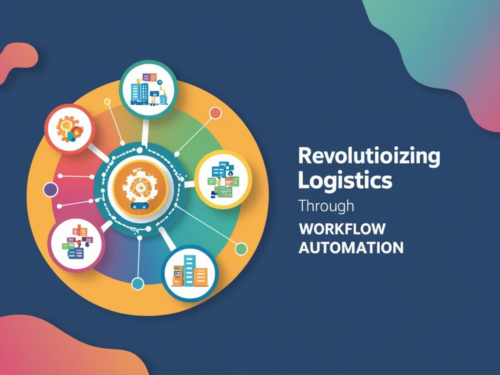Consumer demands are rapidly changing, forcing retailers to adapt their supply chain, inventory management, and customer engagement strategies to remain competitive. As expectations shift, the importance of cloud infrastructure in driving retail growth becomes more pronounced. Cloud technology offers the scalability and agility needed to address fluctuating customer demands, particularly during peak seasons and promotional events. By leveraging cloud solutions, retailers can optimize operations and enhance the overall customer experience. This adaptability is essential for sustainable growth in a dynamic retail landscape.
In today’s digital-first environment, consumers expect convenience, personalization, and seamless experiences across both online and physical channels. Cloud infrastructure helps retailers meet these demands by centralizing data and streamlining processes by utilizing data analytics, artificial intelligence, and machine learning and gains valuable insights into consumer behavior and preferences. This knowledge allows for refined marketing strategies and optimized inventory management. Embracing cloud technology enables retailers to navigate the evolving retail sector with agility and efficiency, positioning them for long-term success.
Role of Cloud Infrastructure in Retail Transformation
Cloud infrastructure is transforming the retail industry by offering unparalleled scalability, especially during peak shopping seasons. Thanks to the elasticity of cloud computing, retailers can dynamically adjust computing resources to handle spikes in web traffic and transactions effortlessly. With features like cloud-based load balancing and content delivery networks (CDNs), retailers can optimize performance and minimize latency during high-demand periods. Additionally, autoscaling capabilities allow retailers to automatically scale resources, ensuring seamless operations during peak times and enhancing the customer experience.
Moreover, cloud infrastructure provides robust data management solutions essential for modern retail. Retailers can securely store and analyze vast amounts of customer data, sales transactions, and inventory details, gaining key insights into consumer behavior, preferences, and market trends. This data-driven approach enables personalized marketing strategies and optimized product offerings, driving customer loyalty and business growth. By leveraging cloud-based data management, retailers can run targeted campaigns, predict demand, and improve the customer experience across multiple channels, strengthening their competitive edge in the retail market.
Meeting Growing Retail Demands Seamlessly
Scalable cloud solutions are essential for retailers to manage fluctuating customer demands, especially during peak seasons. With cloud infrastructure, retailers can dynamically adjust their operations to handle varying levels of demand, ensuring consistent performance and high customer satisfaction during high-traffic periods. Cloud-based load balancing and content delivery networks (CDNs) allow retailers to efficiently manage web traffic, reduce latency, and enhance the shopping experience.
Additionally, cloud technology empowers retailers to leverage advanced data management and analytics for informed decision-making based on market trends and consumer behavior. By securely storing and analyzing large volumes of customer data, retailers can refine marketing strategies, predict demand, and optimize product offerings to align with changing customer preferences. Cloud-based solutions seamlessly integrate big data and analytics, enabling targeted campaigns and enhancing the customer experience across multiple channels, demonstrating the agility and customer-centric approach necessary to meet the evolving demands of the retail industry.

Maximizing Retail Efficiency with Cloud Infrastructure
Heightened data security: Cloud infrastructure provides robust data security measures, including encryption, access controls, and regular backups, safeguarding sensitive customer information and business data from potential threats.
Enhanced user experience: By leveraging cloud technology, retailers can deliver seamless and personalized experiences across multiple touchpoints, ensuring a cohesive and responsive interaction with customers, and ultimately fostering brand loyalty.
Improved inventory management: Cloud-based inventory systems enable real-time tracking, demand forecasting, and automated replenishment, optimizing stock levels, reducing holding costs, and minimizing stockouts, thereby improving operational efficiency.
Effective disaster management: Cloud infrastructure offers data redundancy, off-site backups, and disaster recovery capabilities, ensuring minimal disruptions and swift recovery in the event of unforeseen incidents such as system failures or natural disasters.
Increased profitability: The agility and scalability of cloud solutions support cost-efficient operations, enabling retailers to respond swiftly to market demands, reduce infrastructure costs, and allocate resources effectively, ultimately contributing to increased profitability and sustainability.
Cloud Shapes Future Retail Growth Landscape
In the future, cloud technology is set to revolutionize retail, driving efficiency and personalized experiences. Retailers will increasingly rely on cloud-based solutions for real-time data analytics and operational agility across digital and physical channels. The integration of AI, machine learning, and IoT with cloud computing will enhance engagement and enable retailers to adapt to changing market dynamics.
Cloud technology’s future in retail growth also promises improved resilience and adaptability, empowering retailers to swiftly respond to market shifts and disruptions. This flexibility will enable retailers to thrive in a competitive digital landscape by enhancing operational agility and driving growth through data-driven strategies.













